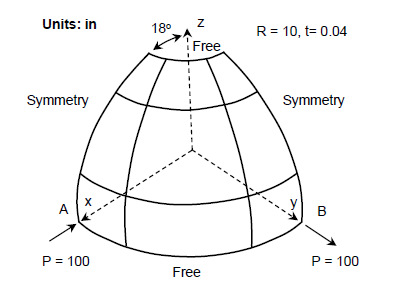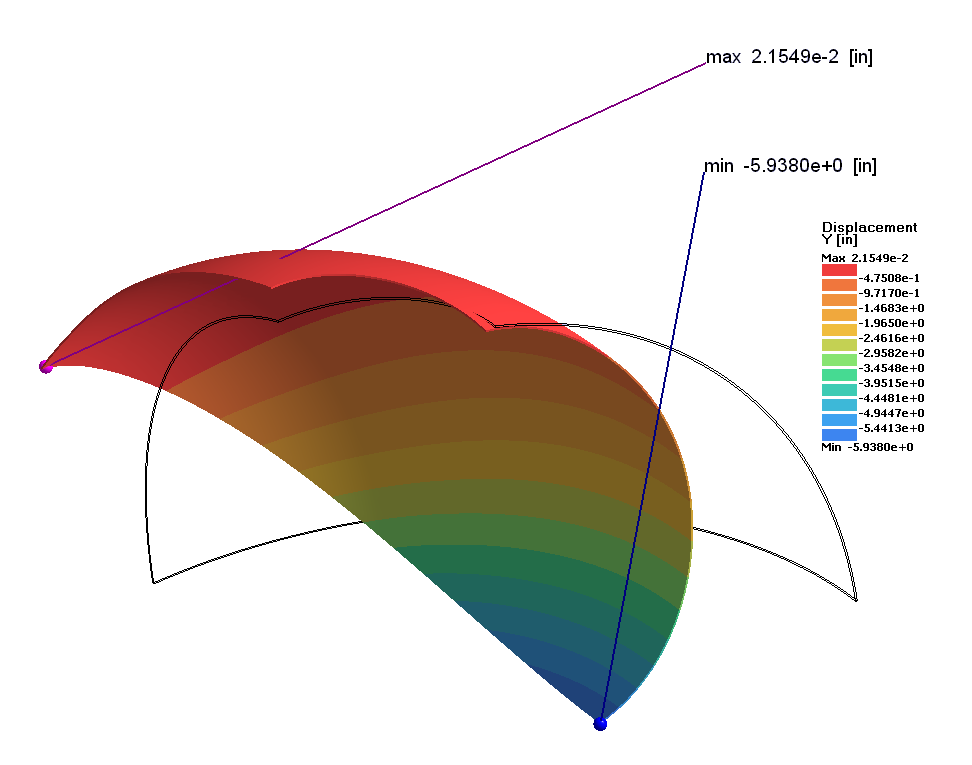SS-V: 5070 Pinched Hemispherical Shell
Test No. VNL08 Find displacements of a hemispherical shell loaded with inward and outward concentrated forces.
Definition

Figure 1.
- Properties
- Value
- Modulus of Elasticity
- 6.825e+7 psi
- Poisson's Ratio
- 0.3
Results
Symmetry conditions were simulated via sliding boundary conditions applied at faces coinciding with symmetry planes (Figure 2). Concentrated forces were applied in points of outer face of the sphere (Figure 3). In order to eliminate rigid body motion along Z-axis a point on the top of the sphere was constrained in Z-direction (Figure 4).
In Figure 5 and Figure 6 true deformations of the shell at load P = 100 lbf are shown.
| Load [lbf] | Ref Solution *, Uy at Point A [in] | SimSolid, Displacement Ux at Point A [in] | % Difference |
|---|---|---|---|
| 40 | -3.280 | -3.148 | -4.02% |
| 60 | -4.360 | -4.120 | -5.50 |
| 100 | -5.950 | -5.482 | -7.87 |
| Load [lbf] | Ref Solution *, Uy at Point B [in] | SimSolid, Displacement Ux at Point B [in] | % Difference |
|---|---|---|---|
| 40 | -2.330 | -2.268 | -2.66% |
| 60 | -2.830 | -2.725 | -3.71% |
| 100 | -3.430 | -3.255 | -5.10% |
* Ref Solution is a thin shell model

Figure 2.

Figure 3.

Figure 4.

Figure 5.
